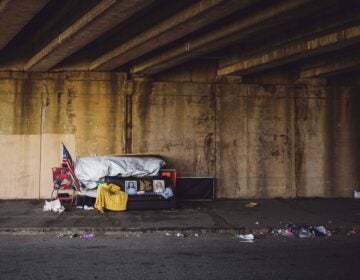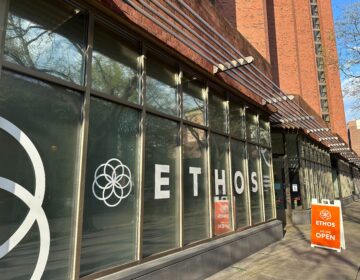When dollar stores re-brand – one new development hinges on this zoning question
Some things you can buy in a Dollar Tree store: brushes for washing baby bottles; kids’ party goody bags and small toys to fill them; holiday and seasonal knick-knacks and decorations; rubbery plastic “severed hands” and Whoopie cushions; posterboard, ponytail holders and school supplies.
At more and more locations of Dollar Tree, the fixed-price retail chain with more than 3,500 green-and-white locations in 48 states, you can also buy: a loaf of fresh bread, a half-gallon of milk, pancake mix, snacks of the crunchy, salty, savory and sweet kinds, canned vegetables, frozen egg rolls and the roll of aluminum foil you forgot on your weekly supermarket trip. In many stores, you can use electronic food stamp benefits to pay for it all.
So what is Dollar Tree, exactly — a fixed-price variety store akin to a modern five-and-dime, or a small grocery store that happens to also carry general merchandise? And these days, when department stores like Target carry both barbecue grills and the sirloin steak to cook on them, is there even a difference?
In the ongoing saga of Germantown’s Chelten Plaza shopping center, where some residents are protesting developer Pat Burns’ plans to put a Save-A-Lot supermarket, a Dollar Tree and a linens shop at the corner of Chelten and Pulaski avenues, those are a few of the key questions upon which the whole deal could hinge.
Chelten Plaza lies within the area governed by the Lower and Central Germantown Special District Controls, a zoning overlay specifically barring “retail sales of variety/general store merchandise.” On its corporate website, Dollar Tree, Inc. describes itself as “a customer-oriented, value-driven variety store operating at a one dollar price point.”
That sounds pretty straightforward, and it’s the basis of an appeal of permits issued to Burns’ Pulaski Partners, filed by a coalition of neighborhood groups whose members have been staging protests and picketing at the site for weeks.
Carl Primavera, the lawyer representing Pulaski Partners, said at the appeal hearing he’ll argue the overlay is so broad that it would exclude almost every retailer, not just the down-market, flea market-type stores he thinks the overlay was meant to keep out.
“They crafted the overlay in a way that is not artful,” Primavera said. “They should have been more specific in saying what applies in this.”
He said Dollar Tree is suffering from a social prejudice against the word “dollar” and the chain does not offer irregular merchandise, past-dated groceries and other items negatively associated with urban discount stores.
“There’s a hangup on stores that are perceived as catering to a demographic that’s not what you’re comfortable identifying yourself with,” he said. Paired with the plan for the Save-A-Lot supermarket, some neighbors have suggested Burns thinks Germantown “is a ghetto.”
Elsewhere in the Northwest, Dollar Tree has locations in the Ivy Ridge Shopping Center in Roxborough, in the Andorra Shopping Center and on City Line Avenue. Primavera said he thinks the protesters “have cut off their nose to spite their face” because by seeking to have the overlay explicitly enforced, they could end up blocking all retailers.
“L&I told us that if Neiman-Marcus wanted to open up at Chelten Plaza right now, they wouldn’t give them a permit,” Primavera said. “If in fact the overlay, which was designed to prevent the destruction of the retail corridor, is literally preventing development — the exact opposite of what the overlay was attempting to accomplish — then the protestants do not have an argument.”
As Plan Philly has reported, that overlay, and most others, would likely disappear if City Council adopts a new zoning code. So it would seem Pulaski Partners could simply wait out the zoning change, then proceed with the development.
But Primavera said given Council’s uncertain timetable for considering and adopting a new code, Burns will instead seek to have the terms of the current overlay clarified.
“What we are hoping to do is work with council and work with the Planning Commission to try to clarify the overlay so it really does what it’s intended to do,” he said. “It’s about how we do this in a way that makes sense, versus bickering about what is a grocery store or a variety store.”
—
Contact Amy Z. Quinn at azquinn@planphilly.com
WHYY is your source for fact-based, in-depth journalism and information. As a nonprofit organization, we rely on financial support from readers like you. Please give today.




